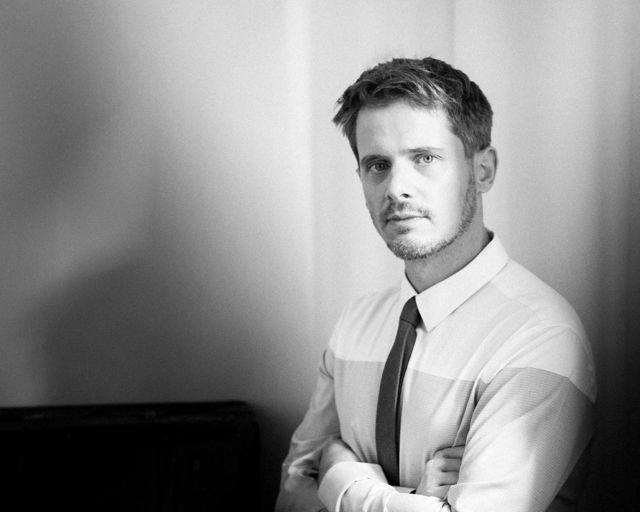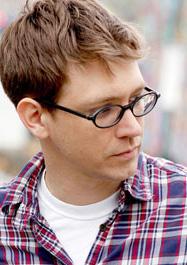
3 minute read
The Creators of Fellow Travelers
Fellow Travelers is composer Gregory Spears’ fifth opera. With degrees from the Eastman School of Music, Yale, and Princeton, he currently teaches composition at SUNY Purchase. His canon of work includes operas, vocal, and instrumental works mainly for chamber ensembles. Spears has expressed his love for opera through his relationship to the singer; describing the human voice as the best bridge to the audience. Since his first opera, Paul’s Case, Spears has continued to grow the genre, even writing operas for youth including his most recent opera, Jason and the Argonauts. At present, he is working on a new opera, Castor and Patience, collaborating with the current U.S. Poet Laureate, Tracy K. Smith. Commissioned by Cincinnati Opera, it will premiere in 2020. Many prestigious institutions including the American Academy for the Arts and OPERA America have lauded his work. Influenced by Romanticism, Minimalism, and early music, the Boston Globe called his music “beautifully unsettling.”
Adapting Thomas Mallon’s book, librettist Greg Pierce had a key role in creating the opera Fellow Travelers. Pierce has nine plays under his belt to date, including commissions from the Lincoln Center Claire Tow Theatre, Albee Foundation, Public Theatre Under the Radar Festival, and the New York Public Library. No stranger to music collaborators, however, many of Pierce’s plays are scored including The Quarry and The Landing by composers Randal Pierce and John Kander, respectively. Unlike Mallon, Pierce does not often write historic realism, rather surreal fictional works, so collaborating on Fellow Travelers represented a new challenge for him. Fellow Travelers is his first opera. In addition to his playwriting career, Greg Pierce has published several
Advertisement


short stories in literary magazines including the New England Review and the Berkeley Fiction Review. He graduated with a B.A. from Oberlin and an M.F.A. in Creative Writing from Warren Wilson College.
American Minimalism is branch of modern classical music developed in the 1960s by composers such as Steve Reich and Philip Glass. This music is characterized by repetition, drones, silence, and sustained harmonic modulations not bound by any musical form.
Fellow Travelers premiered at Cincinnati Opera in 2016, and was commissioned by Opera Fusion: New Works, a collaboration between the opera company and University of Cincinnati College-Conservatory of Music. Since the premiere, the opera has been performed by the Lyric Opera of Chicago and Minnesota Opera, both in 2018. The cast and orchestra reflect the intimacy of the opera, with seventeen musicians in the orchestra and a cast of nine. With short scenes, Pierce crafted a conversational flow. Spears’ score is tonal, lyrical, and the instruments create minimalist soundscapes, such as the humdrum of an office typewriter or a brief quote of a popular Christmas carol.
Spears described his compositional inspiration in the premiere’s program notes:
“Particularly in Tim and Hawk’s public interactions, love cannot simply “speak” its name. Music must bridge the gap. … From this starting point, I looked for ways
to express the innuendo-driven world of Hawk and Tim while maintaining a relatively cool musical surface. … I tried to do this by blending two disparate styles: American minimalism and the courtly, melismatic singing style of medieval troubadours.”
Fellow Travelers was met with glowing reviews, and the New York Times deemed it among the best classical music of 2016. A commercial recording was released in 2017, and can be found on Spotify, YouTube, and other popular streaming services.
Peter Rothstein, the founding Artistic Director of Theatre Latte Da in the twin cities, will be directing Fellow Travelers to bring the story to life for Boston Lyric Opera’s performances of the East Coast premiere of the work. He also directed the production at Minnesota Opera last year. Rothstein has a rich career directing musicals, plays, and opera with a particular affinity for the development of new work. His operatic repertoire is vast, having directed massive operas such as Puccini’s Madama Butterfly for the Guthrie Theatre, and Mozart’s Così Fan Tutte for Minnesota Opera. He has also directed important gay narratives of our generation, namely the documentary theater piece, The Laramie Project, about the murder of gay college student Matthew Shepard. Rothstein, a gay man, has been honored by the Lavender Magazine for his work. He has been named Minnesota’s Artist of the Year and has received prestigious grants from the National Endowment for the Arts, Theatre Communications Group, and National Alliance for Musical Theatre. Recently, he won the Drama Desk Award for “Unique Experience” for All Is Calm: The Christmas Truce of 1914.



